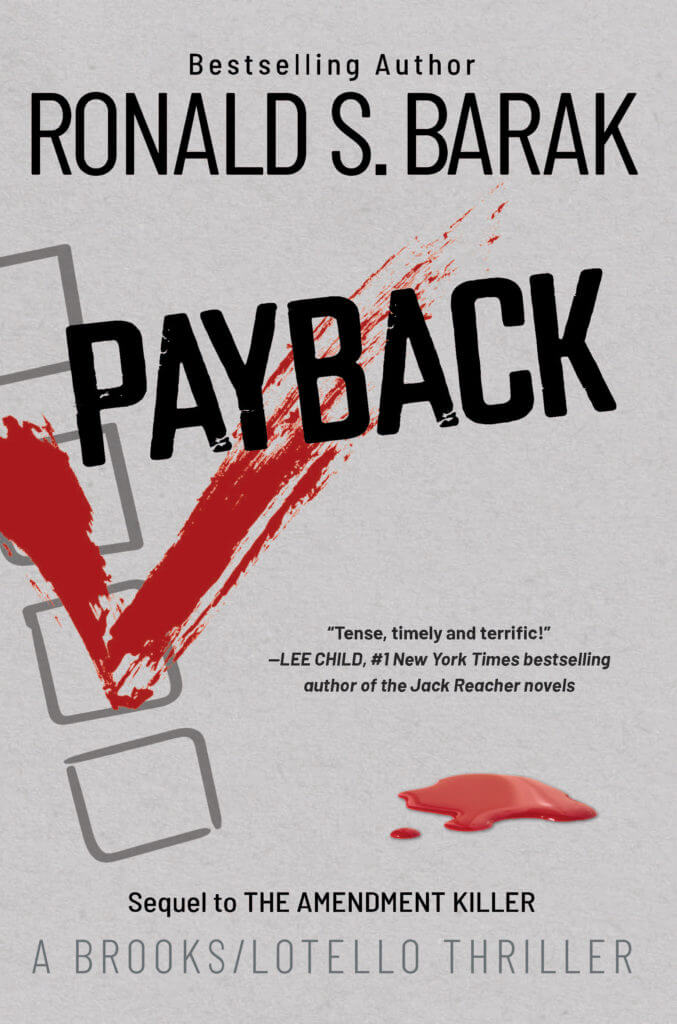
Editor’s Note: Warning, this blog is a bit lengthy. It’s worth reading, but you may want to break it up and take it in parts, perhaps the first two in the first sitting and the second two in the second sitting. However, for what it’s worth, I wrote it in one sitting. 🙂
The Story Leading Up To The Real Story
Certainly there’s a story here. Probably several. And most of them are being told today all across the country. And no doubt will continue to be told in the coming weeks and months. But I think there’s one or two stories here that are not being told. I’d like to take a crack at those.
Presumably, we all know some of the story here. It would be difficult not to.
In 2015, freshman Stanford University swimmer Brock Turner, then 18 or 19, was accused of sexually assaulting a 22-year old non-coed at a campus fraternity party where both had consumed a quantity of alcohol readily available at the party. The victim admits that she was drunk. Turner claims that he too was drunk, and not experienced with the use of alcohol, but there’s some question about both of those self-serving claims on Turner’s part.
Fast forward a few minutes or so to when two students riding their bikes past a dumpster outside the fraternity where the partying and drinking took place see Turner resident on top of a limp woman . . . and doing his thing. The passersby yelled at Turner, chased him down when he took flight, called the police and held him until they arrived, arrested Turner and took the victim, still unconscious (apparently from the alcohol she voluntarily consumed and not from anything Turner had done) to the hospital, where she remained unconscious for several additional hours, suggesting just how drunk she was and how Turner must have known there was no consent when he claims to have been interrupted by the two passersby in the course of “consensual” sex. (One wonders how the two passersby could see from a distance that this “sex” was not consensual, but Turner could not in his closer proximity on top of the victim?)
Here Come Da Judge
Fast forward again to Turner’s criminal trial. The jury found Turner guilty of three counts of criminal assault. We don’t need to go into the details, but you can count the three counts on three . . . fingers.
Turner could have received a maximum sentence of 14 years in state prison. The prosecution asked for six years. County authorities recommended six months because this was supposedly Turner’s first offense and he was, to their observation, truly remorseful.
But remorseful for what? For what he did or for being caught? (Isn’t that always the question in the case of a “remorseful” villain?)
Santa Clara County, California, Superior Court Judge Aaron Persky, former Stanford lacrosse team captain (any conflict there, presiding over a trial of Stanford swimmer Turner?), first ran for election to the bench in 2002. He had been a local prosecutor and he campaigned on a platform that he was tough on sexually violent predators, “keeping them off our streets.” He was elected and has been on the bench ever since.
Persky sentenced Turner to six months in local county jail (a picnic in contrast to state prison), knowing that Turner will be released from county jail after serving only half of the sentence, meaning in three months (for good behavior and because our jails are crowded and we need the beds, kind of like hospitals sending patients home too soon because they need the beds, or perhaps because the insurance companies don’t want to pay for longer stays). The ink on this blog will barely be dry when Turner goes free!
It’s worth noting that Turner himself had proposed that he serve four months. I don’t know if by that he meant two months with time off for good behavior or he really meant four months? (If Turner really meant four months, then Persky knew he was effectively sentencing Turner to one month less than Turner himself proposed!)
Did Persky simply follow the recommendation of the county authorities (and did they really mean six months or just three months?) or was this his own independent . . . “judgment?” What he said was that he thought that anything longer or any time in state prison might be “harmful” to Turner. Wow, no one would possibly want to see Turner . . . harmed by or for his actions!
Judging Da Judge
Several different avenues of removing Persky from the bench are now underway. Hundreds of thousands of individuals across the country have signed an online petition calling for Persky’s recall. The number is growing by the day. It will probably be over one million by the time you read this. A Stanford law professor is pursuing Persky’s recall, and is reportedly well-funded in that effort. (Ironically, Persky was just reelected on June 7, in the middle of all this public outrage because his reelection bid was unchallenged and so his name did not appear on the ballot. Unknown to the voters, Persky was technically reelected by them to a brand new term, all the while they were screaming for his removal. Something not right about this picture.)
The California Commission on Judicial Performance has the authority to remove a judge for “corruption, ethical lapses, or incapacity,” but not for public outrage over a light sentence. There is no suggestion of corruption or ethical lapse on Persky’s part, but I explain below why I think incapacity might well apply to Persky. The California State Legislature may also remove a sitting judge in a procedure somewhat akin to federal impeachment (for presidents on down to federal judges).
So, let’s get down to cases, brass tacks as it were. What’s the real story here—at least for me?
I don’t recall when a recall has ever been more called for. (Try saying that fast ten times in a row!) But just what is the correct way to go about recalling a judge who appears to have lost . . . his judgment? His moral compass? His common sense? Whatever you want to call it.
First, has Persky lost his judgment, lost his way as a judge?
Well, there is the light sentence he imposed on Turner. That’s pretty hard to swallow.
Turner claims he was drunk, and not thinking clearly. Obviously, Turner was not thinking responsibly, but there is some question if the cause of that was alcohol. The degree of his intoxication has been questioned. Among other facts possibly bearing on that is a text found on his cell phone in which he sent a group of his buddies a photo of the victim’s naked breasts. When did have time to stop and do that? And operate those tiny little smart phone keys? I have a hard time with that when I’m sober. But drunk? I find Turner stopping to do this intriguing. When in the world did Turner, supposedly too drunk to recognize the gravity of his misconduct, have the ill-presence of mind to take and text that photo?
But there is more doubt about Persky’s judgment and capacity. On June 10, when Persky was impaneling a jury in a new and unrelated case (the beat, and life, goes on), 12 juror prospects stated in court that they could not stand being in the same courtroom with Persky and would not serve. Persky’s response: “I understand, it’s okay, you’re dismissed, you can go home. Have a nice day.” Really!
There’s a right way and a wrong way to question a judge’s fitness. The shirking of these candidates’ public jury duty is not the right way. Kind of like “innocent” looters robbing local stores during a riot, no matter how righteous the riot might supposedly be. Two wrongs don’t make a right. Persky should have held these 12 juror candidates in contempt and let them spend a few nights in jail. Perhaps they would have recalled their civic duty and decided a few nights in jail might be worse than a few days with Persky in his courtroom. (If they were willing “to do the time,” only then would I be okay with their peaceful civil disobedience. But to get off with nothing more than a “have a nice day” pat on the back? Doesn’t work for me.)
When Persky reacted as he did, he demonstrated to me, along with his light sentencing of Turner, that his judgment is seriously impaired. (My gosh, if it were left up to him, he would probably grant the recent petition of the university students who say they should not be given less than a B grade because they are too busy demonstrating about political incorrectness to attend or study for their classes!)
If Persky felt he could not properly handle these protesting juror candidates because he might appear defensive, then his judicial “capacity” is indeed impaired.
Either way, lack of judgment or lack of capacity, Persky needs to be properly removed from the bench. (Perhaps he should have the common sense to resign. He might not question (or have the capacity to question!) his lack of judgment, but he should be able to objectively assess his lack of capacity. Certainly he knows whether his accommodation of those juror candidates was because he was worried what would be said about him if he treated them more harshly.)
But proper removal is easier said than done. We choose judges to do the “right” thing, at least in their judgment. They should decide cases based on law and evidence in the courtroom, not on popular public opinion outside the courtroom. If the latter was permitted to be considered, African Americans in this country might still be sitting at the back of the bus, attending “separate but equal” schools and drinking from separate water fountains.
So for me, the problem with a recall vote is that it allows popular public opinion to control and, for the reasons set forth in the preceding paragraph, that is not sound. But what, then, about judges who are elected by popular public opinion (vote). I don’t honestly think that’s appropriate either. (When you last voted for a judge, did you do anything to assess his or her legal or judicial knowledge and temperament?) Note, for example, that there was obviously a lot more involved than Persky’s claim that he is all about getting sexually violent predators off our streets.
I think the only proper way to remove a sitting judge—and the only proper way to select a judge for judicial office—is through a balanced bipartisan commission or panel of experts appointed by the state governor, who are given the resources to vet the judge—or candidates—and then recall—or appoint—them. We need to keep politics out of the equation.
Plenty of Additional Blame to Go Around
And while we are sitting around here assessing blame, I want to point out that there is more to go around here than just Persky (and Turner), although those two are certainly a good starting point.
How about universities like Stanford who allow “party culture” fraternities and sororities to exist on campuses with booze available in abundance and regularly and unlawfully imbibed by minors, while the universities give a chuckle, a wink, and a nod, and turn the other cheek because to do more would no doubt offend former fraternity and sorority alumni whose donations help finance the universities, including the salaries of their administrators and professors? (This issue is not new. Hazing deaths of fraternity and sorority pledges have occurred for years, and still these fraternities and sororities persist unbridled.)
How about parents who are soft on their kids (who, like Turner’s parents, ignore their kids’ repeated misbehavior—Turner reportedly was guilty of several underage abuse of drugs and alcohol in spite of his self-serving testimony to the contrary)? Turner’s parents both advocated no jail time for their “fragile” son. The father wrote a letter to Persky in which said imprisonment would be inappropriate for nothing more than twenty minutes of “action”? With a father raising a son who thinks and speaks like that, it is not difficult to understand how the result is a son who thinks and behaves like Brock. Parents like Turner’s father are probably also willingly paying the tuition of their kids who are petitioning for no grade lower than a B because they are busy protesting social injustice instead of going to class and studying. (If these future leaders of our country think they know best, can’t they manage to do both, in moderation? And if they are so pure and honest, why would they accept a grade they didn’t earn?)
And what about the kids themselves? While they are busy managing and fixing the world at large, why are they not able to manage the much simpler events and circumstances that led to Turner’s attitude, and misconduct? As George Bernard Shaw put it, “youth is wasted on the young.” They should be capable of better.
And how about the media who are too busy reporting on Turner’s and Persky’s shortcomings to focus on what are perhaps the even more serious issues raised in this blog?
Join the discussion either by logging in just below or by signing into your favorite social media outlet. If you’re having trouble, please follow these instructions to guide you! Thanks!







